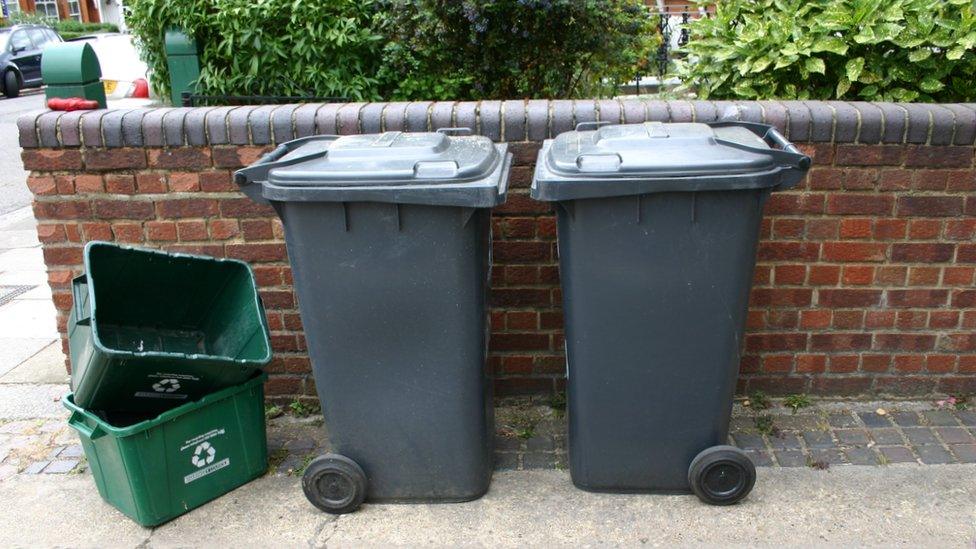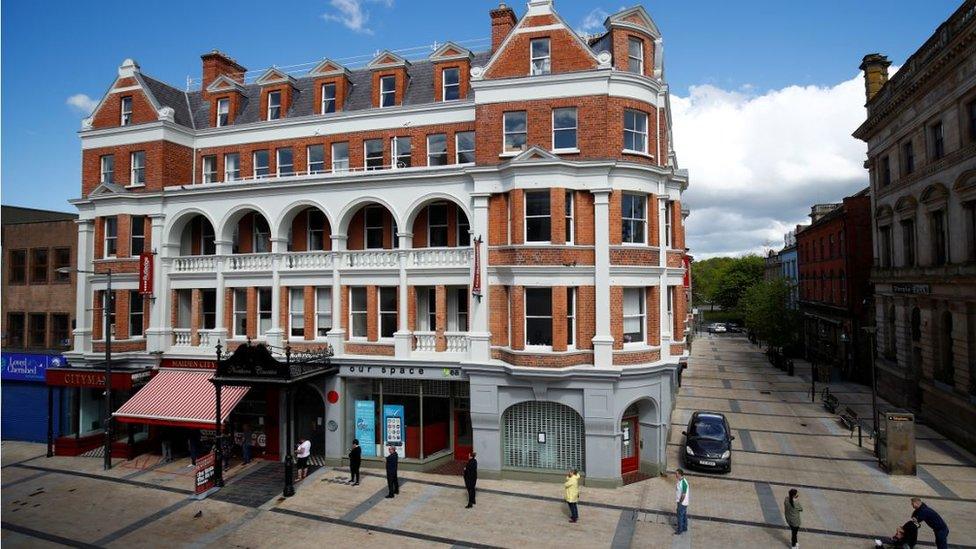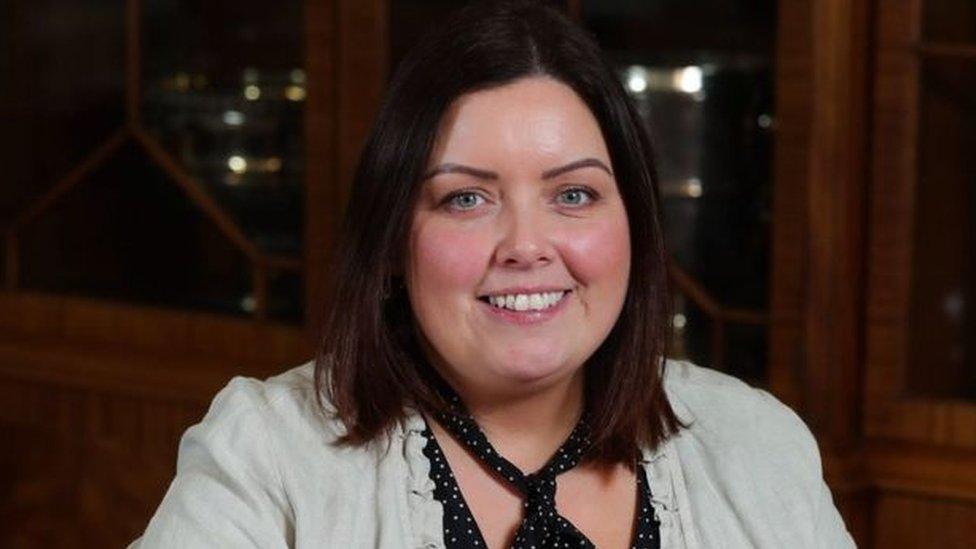Coronavirus: NI councils facing a 'cash crisis'
- Published

The NI Local Government Association has said councils are losing £10.5m a month at a time of extra cost pressures
Councils in NI are facing a cash crisis as a result of the coronavirus outbreak that could force them to cut services, it has been claimed.
The NI Local Government Association has said councils are losing £10.5m a month at a time of extra cost pressures.
An SDLP councillor says Derry City and Strabane council could be financially insolvent by the end of the year.
John Boyle said several revenue streams had stopped due to the pandemic and reserve funds were "dwindling".
The NI Local Government Association (NILGA) said councils had invested £40m in the Covid-19 response and their rates income could be down by a quarter this financial year.
The umbrella body called for national, Stormont and local government to come together as "one public purse".
'Piggy bank will be empty'
Cllr Boyle, a former mayor, described Derry City and Strabane District Council as having to spend "additional money on top of losses" in order to maintain essential services.
"There is very little income coming into the council and they have to dip into reserves to deliver services," Mr Boyle told BBC Radio Foyle.
"I'm worried the piggy bank will be empty at some juncture this year."

People keeping their distance in a queue outside a butchers in Derry during the pandemic
Mr Boyle warned "without central and regional government support" he was "significantly worried that in the medium to long term the council actually wouldn't have the finances to continue operations as they normally would".
He said the coronavirus pandemic had seen a closure of revenue streams such as leisure centres, which had resulted in a substantial loss of income.
'No plans to lay off staff'
Derry City and Strabane District Council confirmed the loss of income had come at a time of additional cost pressures.
A council spokesperson said the current Covid-19 emergency situation has had a significant financial impact on council".
They said the financial impact "was still being calculated," but officials were working with NILGA and other councils to claim back "emergency expenditure incurred during this emergency period from central government".
The council said it had "no plans to lay off staff despite the financial difficulties" but would "highlight the need for urgent government intervention to assist councils deal with the impact this financial downturn will have on its ability to provide public services".

Communities Minister Deirdre Hargey made an announcement on Monday about councils and the government's furlough scheme
Communities Minister Deirdre Hargey confirmed on Monday councils could apply to furlough non-essential workers under the Coronavirus Job Retention Scheme.
The move comes after there was confusion over whether the scheme could be fully accessed by local authorities.
Ms Hargey said she understood this was "a very difficult time for everybody".
"Our eleven councils provide very important functions and services, continuing to do so during this emergency and looking ahead, councils need to be ready to play their part in the economic recovery," she said.
NILGA chief executive officer Derek McCallan said the clarity around the furlough scheme was "a help" but said the situation facing councils was a whole "very worrying" .
Mr McCallan said the current situation was "unsustainable" and warned it could have a "massive impact" on the public.
"Imagine having no or reduced public health service planning, no sports or culture funding programmes and no facilities to participate in those- that is the stark reality," he said.
Mr McCallan believes financial losses councils cannot get back should be provided through a hardship fund from both regional and national government.
NILGA wants the Treasury to provide the same package they have given English councils, which translates to about £50m for Northern Ireland.
"We need hope and we need investment," Mr McCallan said.
- Published30 April 2020
